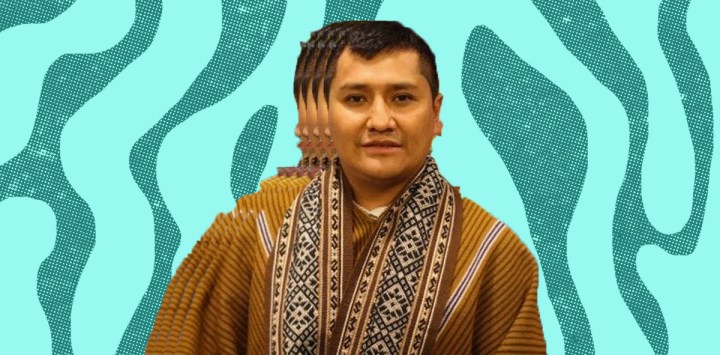Meet Nico Suárez-Guerrero, the First Quechua Fulbright Scholar at an Ivy League School

Art by Stephany Torres for Remezcla
University of Pennsylvania graduate student Nico Suárez-Guerrero is the first Quechua Fulbright scholar at the Ivy League school.
At the institution, the Peru-born academic, who is also the only current Quechua recipient of the prestigious cultural fellowship in the country, is creating spaces on campus for his culture.
Through the Penn Quechua Language Program, Suárez-Guerrero and program coordinator Américo Mendoza-Mori design curricula and initiatives around the Indigenous culture and language.
“We don’t just offer classes but an opportunity to bring diverse perspectives,” Suárez-Guerrero told The Daily Pennsylvanian. “We have so much to share, and that can be new for many members of the Penn community.”

Quechua, spoken by about 8 to 12 million people worldwide, is the most-used Indigenous tongue in South America. However, UNESCO has deemed the language endangered.
Through the Quechua Language Program, Suárez-Guerrero doesn’t just aim to preserve the tongue but also promote it beyond South America.
For instance, Suárez-Guerrero hopes to expand the program by creating an opportunity for immersion with Quechua-speaking communities and involving more Indigenous individuals.
“We are creating and strengthening community, and this is important,” he said. “The goal is to add voices that might be unknown: Indigenous people across have so much to say about respect and care of nature.”
While Suárez-Guerrero said he is honored to receive the Fulbright grant, a perk of the U.S. cultural exchange program and fellowship that aims to improve intercultural competence, relations and diplomacy, he knows that he’s not the only Quechua student deserving of a spot in the program and hopes many others are soon given the opportunity as well.
“I hope that this door remains open to many more people not only from Peru but from other regions where Quechua is spoken,” he said. “I don’t want to be the only one.”